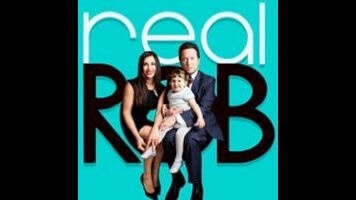If imitation is the sincerest form of flattery, Real Rob flatters no one

Rob Schneider showed his DIY spirit—and impatience with studio rigmarole—when he announced he’d be funding, directing, writing, and starring in a new sitcom. That project, Real Rob, was picked up by Netflix earlier this fall, and will have its streaming debut on December 1. Although Schneider footed the bill for the show’s production, he’s borrowed heavily from other shows for its premise and storylines. Imitation can be the sincerest form of flattery, but it’s unlikely that any of its predecessors will lay claim to Real Rob.
Real Rob stars Rob Schneider as an ostensibly exaggerated version of Rob Schneider who, contrary to popular opinion, is not just a guy waiting around to make movies with Adam Sandler. (For the purposes of clarity, the remainder of the review will use “Schneider” to refer to the creator-writer-star, and “Rob” to refer to the character he’s playing.) He’s a family man who’s starting over yet again with a new wife and child, played by his real-life wife and daughter, Patricia and Miranda Schneider. Art imitates life when Rob lands a pilot deal at a studio for a semi-autobiographical series about his courtship of Patricia and her Mexican-American family’s refusal to accept their subsequent marriage. It’s the same ground the real Schneider covered in 2012’s Rob, the short-lived CBS sitcom in which he tried to win the approval of his in-laws—but he’s not just borrowing from himself here. Playing an outsize version of yourself is a concept that pre-dates Real Rob by decades, from Jerry Seinfeld depicting a shallower rendition of himself in his eponymous sitcom, to Curb Your Enthusiasm featuring a (presumably) more grating iteration of Larry David. Louis CK initially went the same route with Louie, but soon branched out to tell more abstract stories in an effort to keep things fresh.








![Rob Reiner's son booked for murder amid homicide investigation [Updated]](https://img.pastemagazine.com/wp-content/avuploads/2025/12/15131025/MixCollage-15-Dec-2025-01-10-PM-9121.jpg)

























![HBO teases new Euphoria, Larry David, and much more in 2026 sizzle reel [Updated]](https://img.pastemagazine.com/wp-content/avuploads/2025/12/12100344/MixCollage-12-Dec-2025-09-56-AM-9137.jpg)





